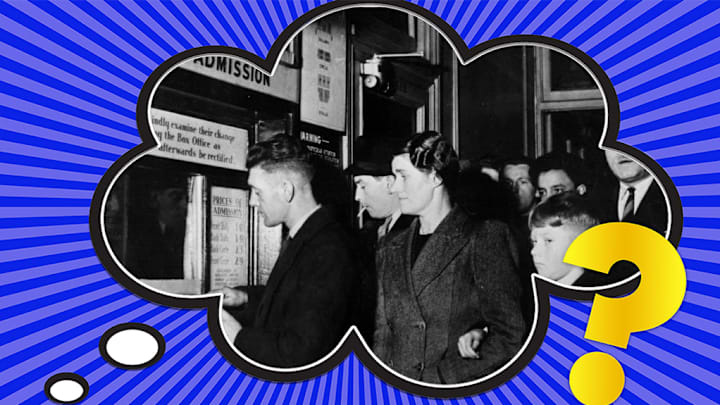The box-like nature of many old-fashioned box offices—enclosed, detached booths situated just outside theaters—seems like a fitting backstory for the term box office. But that doesn’t mean it’s accurate.
The real origin of box office most likely involves a different type of box: the balcony compartments along the sides of a theater, where affluent patrons could enjoy a performance from an enviable vantage point (without having to mingle too much with the hoi polloi). When the phrase box office started appearing in newspapers during the mid-18th century, it specifically referred to the place where people could purchase box seats.
“Places for the Boxes to be taken of Mr. Watson, at the Box Office,” read a 1765 issue of London’s The Public Advertiser. The performance was a comic opera called Love in a Village.

It didn’t take long for theaters to start offering regular tickets at box offices, too. Before that, you usually had to purchase them from some designated person or business in town or at the theater’s stage door. This practice didn’t die out as soon as box offices began to catch on. “Tickets and places to be had of Mrs. Bishop at the Great Rooms, Spring-garden; and of Mr. Spring, at the Box-office,” London’s Morning Chronicle reported in May 1810, regarding an upcoming show at the Lyceum Theatre.
There are other theories behind the phrase box office. The word box has been used to describe a money box or collection box since the 1300s; and according to the Online Etymology Dictionary, box office could have originally been referring to this kind of box. It’s also been suggested that box office dates back to the Elizabethan era, when balcony seating was starkly separate from the “pit,” the general admission section where low-paying attendees watched the show. But without any written evidence of the term box office from before the Georgian era, it seems most plausible that it was coined in reference to those box seats. From there, it was only a short hop to using the phrase as a metonym for overall ticket sales, a custom that first gained popularity in the early 20th century.
Have you got a Big Question you'd like us to answer? If so, let us know by emailing us at bigquestions@mentalfloss.com.
A version of this article was originally published in 2022 and has been updated for 2024.
